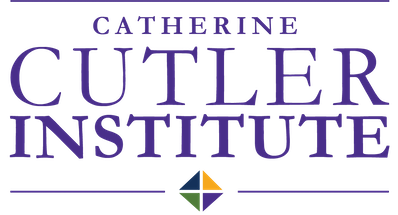The Catherine Cutler Institute | Participant-Led Storytelling Helps Reimagine Foster Care Training
Introduction
The Catherine Cutler Institute at the University of Southern Maine specializes in applied research in areas of public service. One of their initiatives, supported and evaluated by Research Associate Emilie Swenson, is their Youth Leadership Advisory Team (YLAT) program, which works together with young people and with the Maine Department of Health and Human Services Office of Child and Family Services to improve outcomes for youth who have been or are in foster care.
The Challenge
Emilie had two objectives:
record clear, compelling, first-person accounts of different individuals' roles and experiences across the child welfare system, and
generate educational tools from those recordings that would amplify the youth perspective and empower other young people to both navigate and actively advocate within the system. To accomplish this, Emilie needed to create spaces for authentic storytelling—something with the spark of human connection that would render a complex system more approachable.
The Approach
Just three weeks after completing Jacqueline's Spring 2025 Workshop Series on Impact Storytelling for Mission Driven Organizations, Emilie recognized a perfect opportunity when multiple foster care stakeholders would be gathered for a judicial symposium and a YLAT workshop presentation.
She applied the participant-led storytelling model to facilitate three strategic conversations: between the two youth presenters, between a presenter and the judge who'd presided over her case, and between the other presenter and their Guardian ad Litem (court-appointed advocate). Using techniques from the training to prepare participants and to set the stage for authentic dialogue, Emilie let participants guide the conversations with suggested questions, and later edited the recordings into short audio stories.
“I’ve taken many online trainings over the years and there have been two — yours and one other — that I still refer back to because they were immediately useful. When preparing my guides for the recordings, I honestly referred back to everything you created.”
What Made the Difference
As a program evaluator, Emilie was already seasoned at conducting interviews to document impact. But the participant-led storytelling approach enriched her toolkit with a new methodology -- one that elevated interview practice from transactional data gathering to something connecting, relationship-building, and resonant.
The techniques she learned to empower and support participants through the recording journey enabled her to help stakeholders reconnect to the meaning of their work as decision-makers, advocates, and youth leaders. Rather than simply “capturing” information, Emilie facilitated meaningful storytelling experiences, thus eliciting powerful content that key audiences -- particularly young people -- could engage with and feel emboldened by.
“ We do interviews a lot for qualitative data collection, but to have people talk about their story together, a different level of curiosity happens. That kind of meaningful interaction with one another - it’s relationship-building. That’s really different.”
The Results
The approach achieved powerful outcomes across multiple levels:
Deeper Dialogue: Via the two-way conversation, the YLAT spokespeople were able to compare and contrast their care experiences in ways that went beyond their prepared presentations — resonating in their similarities and digging into the differences with authentic curiosity.
Professional Impact: Energized by the connectivity and immediacy of the experience, participants' conversations continued even after recording stopped. The judge shared afterward how powerful and affirming it was not only to learn about the long-term outcomes of one of his decisions, but to encounter it firsthand in personal dialogue with the young person.
Educational Engagement: Five weeks later, Emilie integrated the edited audio clips into a courthouse orientation tour for youth navigating foster care proceedings, creating printed visual aids and facilitating group reflection exercises as they explored the building and listened to intimate perspectives from the "characters" connected to the work there. The audio clips and facilitated discussion sparked thoughtful questions and newfound excitement from youth visitors during courthouse orientation tours, transforming what could have been an intimidating experience into an empowering learning milestone.
“ It was so incredibly positive. We’d listen to a clip, pause, ask questions, and people really responded. The young people were all like, “we want to meet a judge!” There’s just so many ways that participant-led stories like these can be used to facilitate education and conversation in the future.”
Sustained Impact: The Catherine Cutler Institute is now planning additional conversations and content for future educational use, embedding this approach into their ongoing work.
